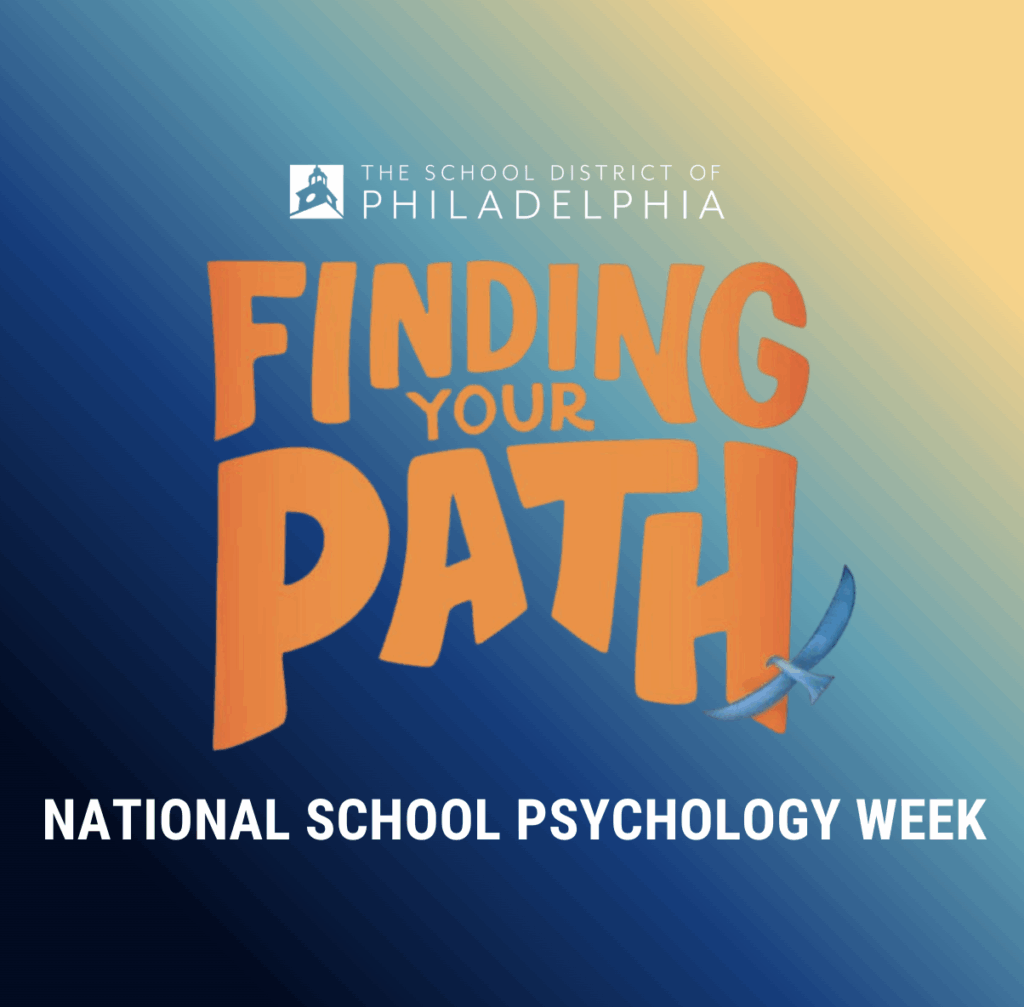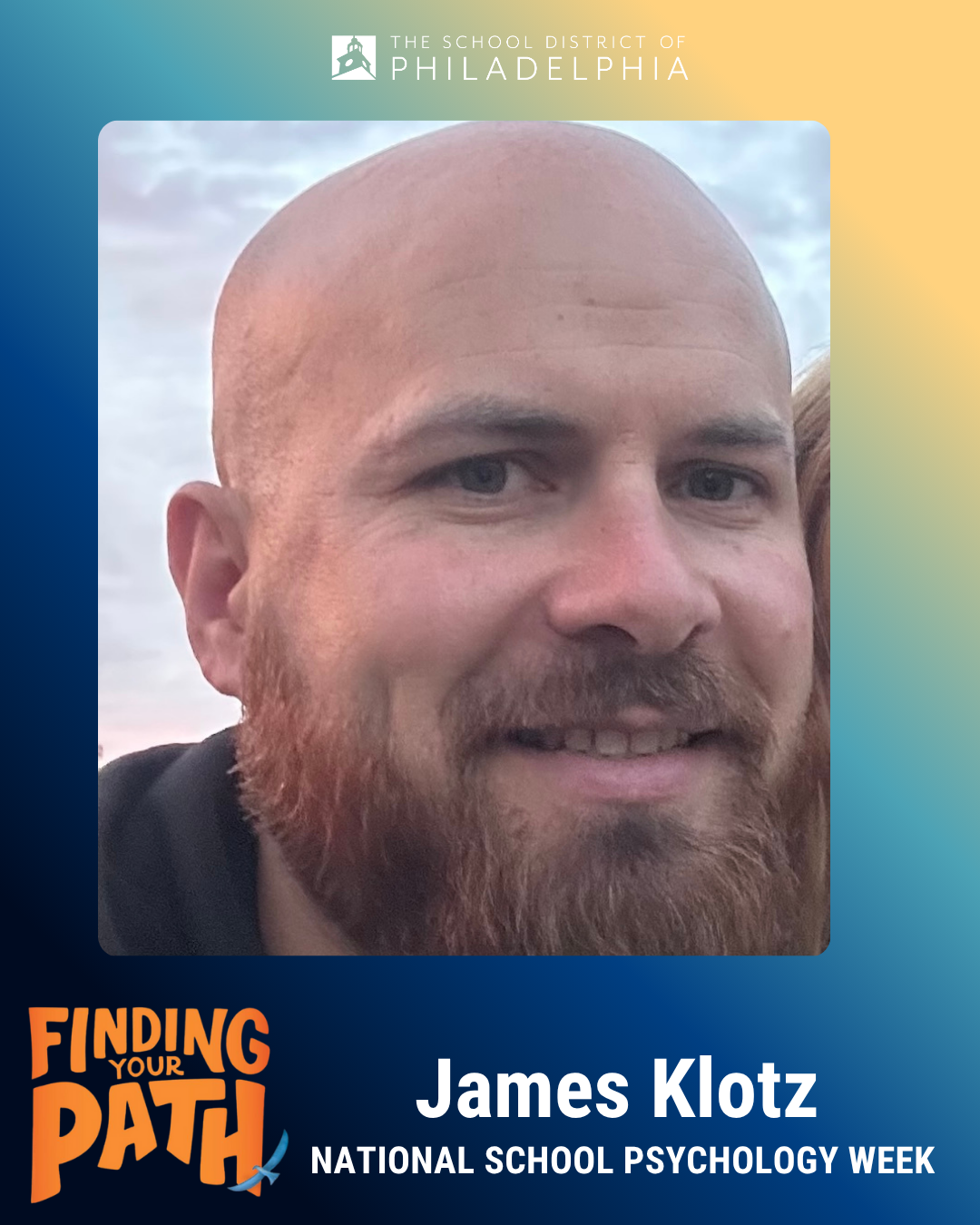Name: James Klotz
Location: Central Office
What made you want to become a School Psychologist?
Answer: Growing up in a large extended family, I was always surrounded by younger children, and being one of the oldest cousins meant I often found myself having to help and guide them. That early experience sparked a love for working with children, which naturally carried over into my professional career. Also, education runs deep in my family. My mother taught second grade in Upper Dublin School District for 29 years, my older sister is a high school teacher in Pennsbury School District, and my younger sister is a reading specialist in Upper Moreland School District. Being surrounded by passionate educators from a young age inspired me to pursue a career in education as well.
How do School Psychologists go above and beyond for their students?
Answer: As a primary responsibility, school psychologists work to ensure that all students, including those with special needs, have access to the supports necessary for academic, social, behavioral, and emotional success at school. Beyond that, many of them also offer themselves as trusted adults for vulnerable children within the school community, coordinators of community resources for families in need, and supportive confidants to their fellow colleagues. Furthermore, within this school district, many school psychologists volunteer their time to participate in special work groups aimed at improving outcomes for underserved populations, such as immigrant families, English language learners, families experiencing housing insecurity or homelessness, and children who have experienced significant trauma.
What is the most important thing you want everyone to know about the work of a School Psychologist?
Answer: School psychologists are so much more than just report writers! Many have specialized training and/or prior experience in other areas, such as teaching, counseling, administration, behavior therapy, and mental health. These diverse skill sets can, and should, be utilized to strengthen instruction, support student well-being, and create healthy and safe school environments. When schools tap into these skill sets proactively, school psychologists can help to identify challenges before they escalate, support staff in implementing effective teaching and behavior strategies, and build a more inclusive and responsive school culture.
What is the most rewarding part of your job?
Answer: The most rewarding part of my work as a school psychologist is helping children and families feel truly seen, heard, and understood. I strive to be thorough, deliberate, and thoughtful in everything I do, and there’s nothing more fulfilling than knowing a child or family leaves an interaction with me thinking, “This person really gets me/us.” These moments are a powerful reminder of why this work matters and why building meaningful connections is at the heart of what school psychologists do.






